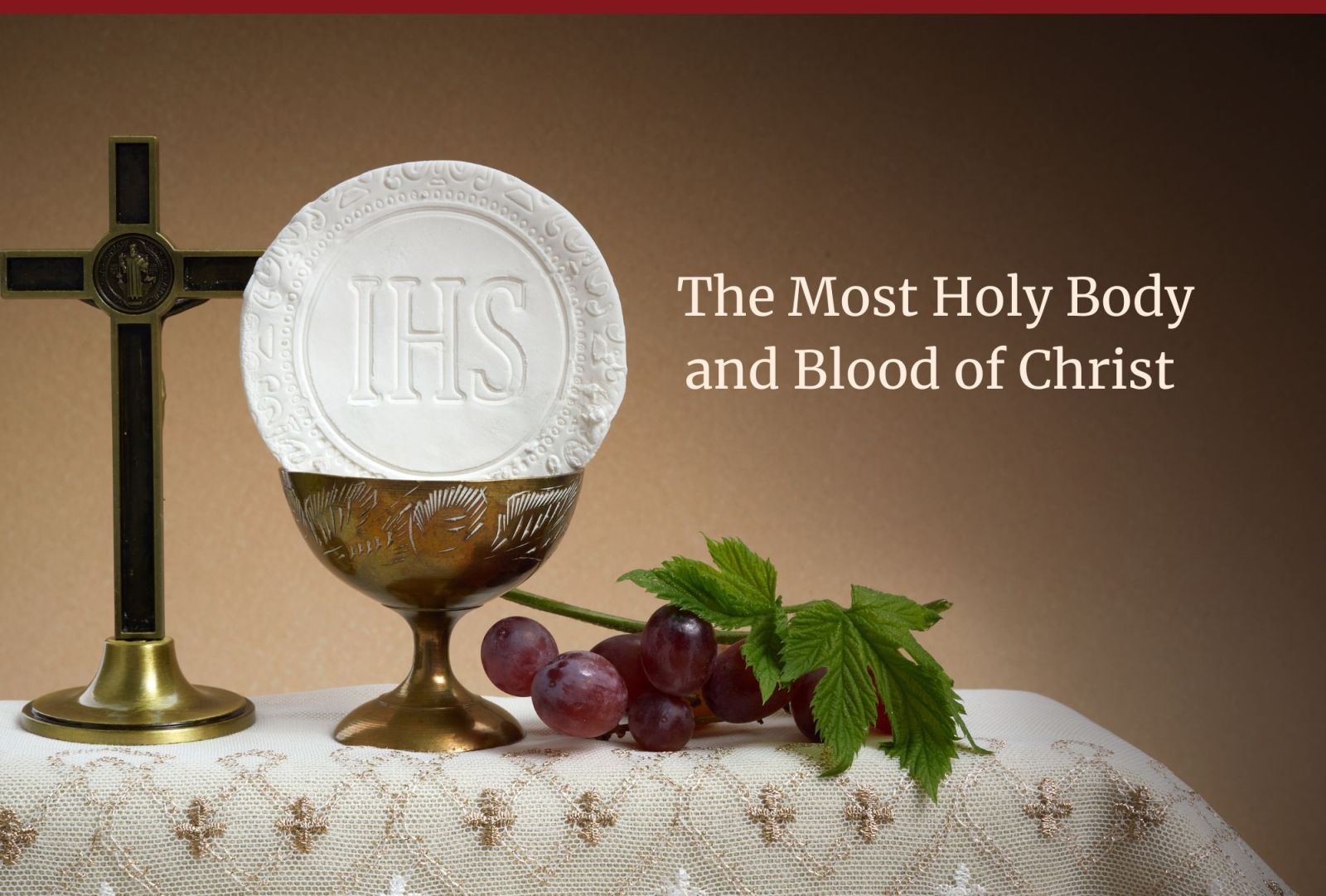
Humanity being humanity, all through the ages, people have struggled with believing as Thomas, that which is not self-evident to our physical senses.
Quite often across the years, God has lovingly, with great compassion, spanned the spirit / physical divide to help us understand and believe the greatness of God’s universal love.
All the Eucharistic miracles are, to the present time, have been in relation to our struggles, by the officiating priest and the general congregation, to believe the message of the good news Christ came to bring; that God is love, is very close and loves you as you are, right now, and calls you to walk and grow with God daily, as was the original intent. This is the intent of the Eucharistic sacrificial covenant meal Jesus gave us.
The feast was instituted following the Miracle at Bolsena and a vision to St. Juliana of Mont Cornillon.
The first recorded Eucharistic miracle occurred in the eighth century in Lanciano, Italy, where bread and wine turned into flesh and blood during consecration. In 1263, a German priest struggling with belief in consecration and Christ truly being present, experienced a miracle in Bolsena, Italy, when blood seeped from the consecrated Host during Mass, leading Pope Urban IV to investigate and enshrine the relics in the Cathedral of Orvieto.
Pope Urban IV then instituted the feast of Corpus Christi in August 1264 to commemorate the trans-substance of the Eucharist as the Body of Christ, an actual reality of Emmanuel – God is with us, not just as a concept, but to show the physical / spiritual reality of God joining with us.
Readings: 1 - Genisis: 18-20 - Melchizedek brought bread and wine.
The terms Messiah and Christ both mean "anointed," with Christ therefore being the Messiah who came to save the people.
In the book of Kings, we see how King David became the anointed one, chosen of God to lead the people back together, as king/priest. Jesus is in the line of David yet more so the line of Melchizedek. Melchizedek appears in Genesis 14:18 as the king of Salem, he is stated as being without beginning or end, and he offers a sacrifice of bread and wine to God as king/priest of the Most High. The title Melchizedek come from two Hebrew words, ‘melek’ meaning king and ‘tsedeq’ meaning righteous. Also ‘Salem’ means peace. Therefore, we have Melchizedek king of Salem titled – The Righteous King and priest of peace.
Melchizedek, the timeless king and priest of Salem, brought a covenantal meal of bread and wine to Abraham and blessed him after Abraham’s victory over the four kings in rescuing Lot, proclaiming God’s power in delivering Abraham’s enemies into his hands, establishing a pattern for covenant meals in the Bible.
Psalm: 109: 1-4 You are a priest forever in the line of Melchizedek.
Throughout the Old Testament, covenants were celebrated with meals, a tradition continued by Jesus during the Last Supper.
A covenant in biblical times was a political/social structure where a King or emperor would say to a lesser king as a process of treaty to join the two nations as a people, not as a conquest where one is overthrown and defeated, but as a joining, a comm-unity. The greater king would use words as “Come, I will be as a father to you, and you will be as a child to me; we will be as one.” Then on the map the borders of the two lands would be encircled and the two would become one. A conventional meal would be shared, sealing the unity.
Concluding this scriptural pattern, Jesus inaugurated his covenant meal when he broke bread and drank wine with the disciples on the night before his crucifixion.
As Jesus stated, “Very truly, I tell you, unless you eat the flesh of the Son of Man and drink his blood, you have no life in you.”
“Those who eat my flesh and drink my blood abide in me, and I in them.”
“This cup is the new covenant in my blood, which is poured out for you”
“I am the living bread that came down from heaven. The one who eats of this bread will live forever.”
In referring to the new covenant, Jesus was announcing that through His death and resurrection forgiveness of sins would be made available to all and that humanity could be changed from our fallen state, to be resurrected to once again live in comm-union with God. Not by one’s self actuation but by allowing the Holy Spirit to come in and work in us, to guide us in how to reject sin in God’s power, with the transubstantiation of us, humanity, as shown at consecration. “Whoever eats me will live because of me.”
The physically imagery of ordinary bread and wine, representing the person/group (us) we become physically transformed into Christ.
The Holy spirit transforms us into the living members of the eternal body of Christ on earth. Alone we can do nothing, in Christ everything.
We at this time of the feast of Christ’s body and blood, are reminded that Jesus as Christ has brought us into comm-unity with God, freed from the consequences of being Law breakers, we can now live, if we chose to, an eternal spirit life in God now as a loving family. Letting go of the old earth family politics, societal beliefs, structures and ways of behaving, to move into the new kingdom where you love and welcome others without the social judgements of the society you reside amongst. - “Come out from them and be ye saved.”
So, from the eternal Melchizedek – bread and wine covenant between God and Abraham to David, to Jesus Feeding the five thousand, to Christ being our covenant food for the journey – bread and wine, one body in comm-unity in God, Christ and each other. Family! One body!
This is the feast of Corpus Christi.